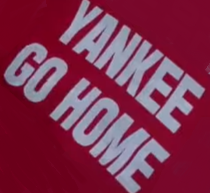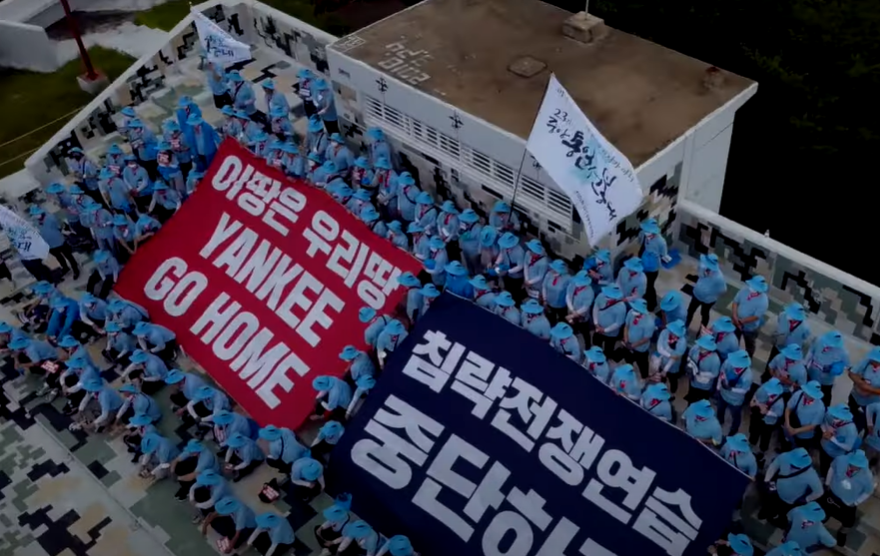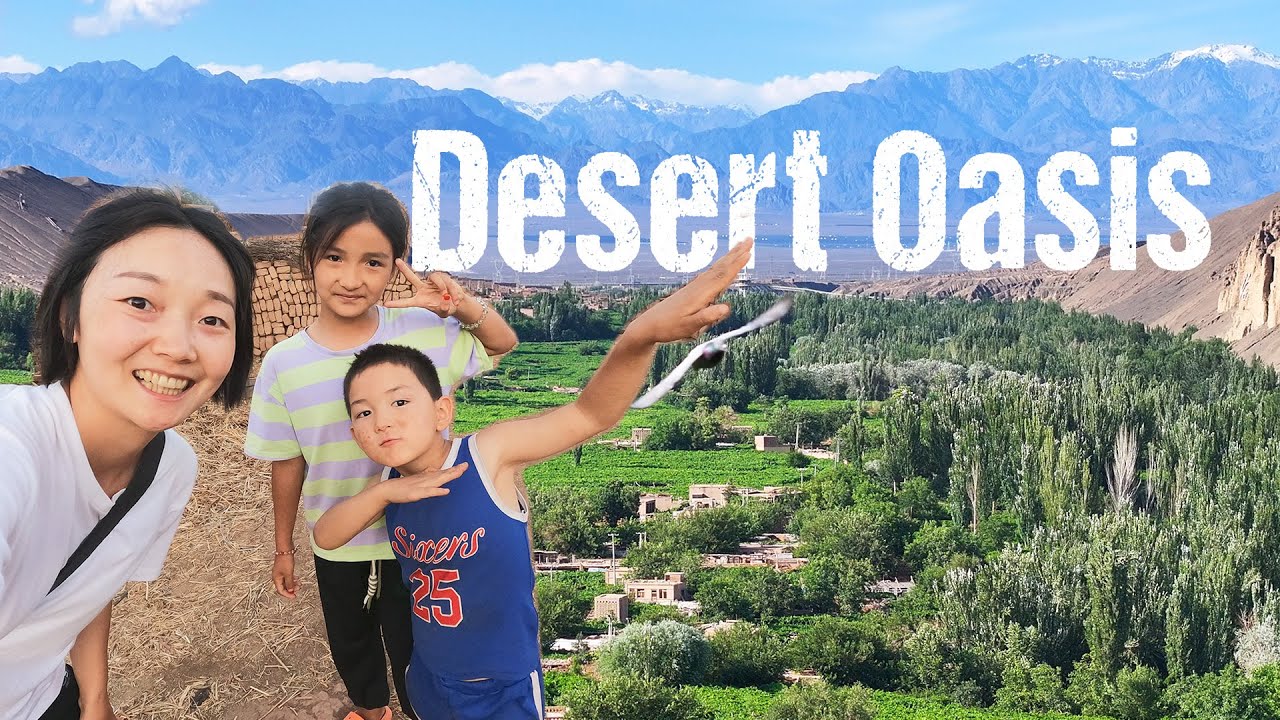Get involved with ProleWiki! https://prolewiki.org/
- 7 Posts
- 21 Comments
In America there are signs posted all over residential zones reminding citizens that they are being spied on by their neighbors who will immediately report all “suspicious persons and activities” to the authorities 😱 Some signs even mention the people have been “trained” to report/spy on each other’s family members 😢




 20·1 year ago
20·1 year ago“We have many interesting projects,” Putin promised, naming as one example the plan to develop Russian railroad connectivity through North Korea. (Source)
Really interested to see if this is pursued.
This is an old article (2018) but it outlines the kinds of projects that have been discussed before concerning Russia-DPRK-ROK:
One such project could be a railway that will be able deliver goods from Russia to South Korea through North Korea. “Once the Trans-Korean Main Line is built, it may be connected to the Trans-Siberian Railway. In this case, it will be possible to deliver goods from South Korea to Europe, which would be economically beneficial not only to South and North Korea but to Russia as well,” Moon Jae-in said in an interview with Russian media ahead of his state visit to Moscow.
A gas pipeline coming from Russia to North Korea to be extended to the South is another possibility, he said. “We can also build a gas pipeline via North Korea, so that not only South Korea will receive Russian gas but we will also be able to deliver it to Japan,” the South Korean president said.
The project to unite the Korean Peninsula with a gas pipeline has been discussed for a long time, but official talks started in 2011. The negotiations were frozen after relations between Seoul and Pyongyang deteriorated. Last week, Russian energy major Gazprom announced it resumed talks with Seoul over the construction of a gas pipeline connecting Russia with North and South Korea.
The countries could also connect their electricity grids, Moon Jae-in said. "We can also establish a powerline that would allow us to receive electricity from Russia. It could also be delivered not only to South and North Korea but also to Japan.”
Unfortunately I don’t know enough about that to speak on it

 41·1 year ago
41·1 year agoI don’t recall the exact details as I believe it was the usual UN demands about DPRK’s missile launches, but basically China went along with a round of security council sanctions adopted in 2017, which meant that petroleum exports become more restricted and thousands of people from DPRK who were working in China had to go home and a bunch of joint ventures were forced to shut down as well. However, in 2022, China and Russia vetoed a new round of US-sponsored UN sanctions on DPRK, and recommended lifting some of the earlier sanctions, as they felt the US had failed to engage in its end of diplomacy with DPRK, and therefore the earlier sanctions should be reduced and no further ones should be imposed.

 7·1 year ago
7·1 year agoKnowing how the wheel of history spins now has given us the ability to predict it and therefore the power to take our destiny into our own hands and shape history after our desire.
I’m not an expert and still in the process of learning about this, but I would say your understanding of it here more or less lines up with my understanding from what I have read so far.
As I understand, Juche dismisses the idealist world outlook as groundless and also rejects mechanical materialism, and holds that the dialectical materialist view is the scientific view of the world. However, it is considered that merely holding a dialectical materialist view does not automatically cause people to start using it as a tool to change the world to humanity’s benefit, which is the question that the Juche idea is mainly concerned with: defining and promoting humanity’s role in changing the world, and increasing peoples’ consciousness of this role. As I understand it, Juche promotes the concept that humans (as a collective whole) not only can but should center themselves in changing the world to benefit them, within the real scientific limits of the world, i.e. with the knowledge of the laws of nature and society which operate independent of human’s will. This is seen as a necessary attitude in humanity’s emancipation from oppression, as simply having a dialectical materialist view does not necessarily cause people to start acting on humanity’s behalf even if it does give them an accurate scientific view of reality’s motion.
Texts about Juche seem to primarily focus on asserting that it is correct for humans to center their own needs in how they shape the world, and also focus on discussing humanity’s historical pursuit for independence and methods of preserving that independence when it is achieved through progressive revolutions, with the primary focus now being the struggle to end imperialism and capitalism and to defend and evolve socialism, in order to remove exploitation from society and continue on humanity’s path to pursuing independence from all restrictions, both natural and social, overcoming them with a methodical and scientific understanding combined with an attitude of intentionally centering human needs and desires in the way humanity consciously shapes the world.
If someone sees something wrong with my understanding, please let me know. I am still in the process of learning about this.

 101·1 year ago
101·1 year agoGeopolitical Economy Report

 2·1 year ago
2·1 year agoI started watching this a while back due to your recommendation, haven’t finished yet, but it’s been an interesting film so far.
I also found this article somewhat recently, it gives an overview of Italy’s settler-colonial project in Libya: Genocide, Historical Amnesia and Italian Settler Colonialism in Libya—An Interview with Ali Abdullatif Ahmida
In the late 1920s, the Italian fascist regime implemented a campaign of ethnic cleansing in eastern Libya to create more land for Italian settlers and quell armed resistance to colonization. Ali Abdullatif Ahmida’s new book, Genocide in Libya: Shar, a Hidden Colonial History, examines this forgotten case of settler-colonial violence and the processes that led to the forced relocation of over 100,000 Libyans to special camps, resulting in the deaths of tens of thousands.
Italy looked at Libya as the “fourth shore,” an extension of Italy like the French treated Algeria—the same mentality. It was a shorter period of colonization (1911–1943) but very brutal. The dream was designed by the so-called liberal colonial state in 1911. The goal was to settle between 500,000 and 1 million Italians, especially the landless peasants from southern and central Italy. They were supposed to be settled mainly in eastern Libya, in the fertile Green Mountain area. The Italian settlers also thought that they would be welcomed by the local population, assuming the Libyans had resented Ottoman rule (1551–1911). That was a big miscalculation. The Libyan resistance to Italian occupation continued for a long time. When the fascists under Benito Mussolini arrived in 1922, they came with an even more vicious, more brutal plan—they decided to clear the land of Indigenous people. […] The settlers believed that since Libya had been part of the Roman Empire they were simply reclaiming it so they could have a place of their own. The idea of reviving Roman Africa was a very integral part of the propaganda to justify colonization.
Regarding your announcement–thank you OP for starting up this project, I looked forward to it each week that it went on, and appreciated seeing everyone’s reflections on the texts. I also liked the simple format and gradual pace. I hope everything works out well with your IRL needs and commitments. Take care!
My study response–As last week I found myself unable to answer the study questions quickly enough, I am going to go with a bit more of a free-form response this time so I don’t end up taking too long to participate. And since I barely participated last thread, I’m just going to make my reply this time be about the text as a whole.
If anyone sees errors in my response, please let me know. I’m not trying to write authoritatively but rather to check my understanding and see whether I can summarize a few of the major points.
Response
I think a quote from early on in this work seems to summarize one of the major points Marx is making throughout the text. He writes: “If the silk-worm’s object in spinning were to prolong its existence as caterpillar, it would be a perfect example of a wage-worker.” (Ch. 2)
In other words, it’s as if a silk-worm is spinning not to become a moth, but to just keep spinning and spinning, generating silk indefinitely to remain a caterpillar indefinitely. I believe Marx is likening this to the process of the wage-worker surrendering their value-creating labor-power to the capitalist class, whose interest it is to make this relationship become only more deeply entrenched and prolonged, and therefore uses the value generated by the worker’s surrendered labor-power to deepen and expand the system of wage-labor under bourgeois dictatorship. As the silk-worm metaphor implies, this is not the most sensible way of doing things from a worker’s perspective. Normally, the silk worm would spin its silk to then use it to eventually undergo transformation into a moth. Likewise, it’s implied that a worker would use their labor-power to create value the worker themself can actually access and benefit from, bringing a transformation in the mode of production, bringing society to a new stage.
In Chapter 8, Marx talks about the implications of the worker’s real wages versus the worker’s relative wages. Speaking of rises in real wages over time, Marx writes: “the more speedily the worker augments the wealth of the capitalist, the larger will be the crumbs which fall to him”–however, even if real wages are rising with profits, when we look at relative wages, we see “a widening of the social chasm that divides the worker from the capitalist, and increase in the power of capital over labour, a greater dependence of labour upon capital.” (Ch. 8) As usual, Marx is calling our attention to the relationships between things. Rather than just look at a line representing real wages go up, we need to pay attention to the growing gap between wages and profits and the implication that this has for the relative social positions of workers and capitalists:
If capital grows rapidly, wages may rise, but the profit of capital rises disproportionately faster. The material position of the worker has improved, but at the cost of his social position. The social chasm that separates him from the capitalist has widened. (Ch. 8)
Toward the end of this work, in the end of Chapter 8 and throughout Chapter 9, Marx turns his attention to explaining the overall effects that the growth of productive capital has on wages, the need for expanded markets, and on causing the competition between workers to intensify:
This war [of capitalists among themselves] has the peculiarity that the battles in it are won less by recruiting than by discharging the army of workers. The generals [the capitalists] vie with one another as to who can discharge the greatest number of industrial soldiers.
[…] The more productive capital grows, the more it extends the division of labour and the application of machinery; the more the division of labour and the application of machinery extend, the more does competition extend among the workers, the more do their wages shrink together. […] the forest of outstretched arms, begging for work, grows ever thicker, while the arms themselves grow ever leaner.
…I have spent more time on this than I originally meant to, and so I need to end here. As I mentioned above, please point out any errors in my understanding, as this is just me writing to try and see whether I understood the text well or not and whether I could identify (some) of the text’s main points.
Thanks again OP, I’m glad you started this study group.

 7·1 year ago
7·1 year agoReminds me of this Aime Cesaire quote:
[C]olonization works to decivilize the colonizer […] each time a head is cut off or an eye put out in Vietnam and in France they accept the fact, each time a little girl is raped and in France they accept the fact, each time a Madagascan is tortured and in France they accept the fact, civilization acquires another dead weight, a universal regression takes place, a gangrene sets in, a center of infection begins to spread; […] a poison has been distilled into the veins of Europe and, slowly but surely, the continent proceeds toward savagery.
And then one fine day the bourgeoisie is awakened by a terrific boomerang effect: the gestapos are busy, the prisons fill up, the torturers standing around the racks invent, refine, discuss.
People are surprised, they become indignant. They say: “How strange! But never mind-it’s Nazism, it will pass!” And they wait, and they hope; and they hide the truth from themselves, that it is barbarism, the supreme barbarism, the crowning barbarism that sums up all the daily barbarisms; that it is Nazism, yes, but that before they were its victims, they were its accomplices; that they tolerated that Nazism before it was inflicted on them, that they absolved it, shut their eyes to it, legitimized it, because, until then, it had been applied only to non-European peoples; that they have cultivated that Nazism, that they are responsible for it, and that before engulfing the whole edifice of Western, Christian civilization in its reddened waters, it oozes, seeps, and trickles from every crack.
Yes, it would be worthwhile to study clinically, in detail, the steps taken by Hitler and Hitlerism and to reveal to the very distinguished, very humanistic, very Christian bourgeois of the twentieth century that without his being aware of it, he has a Hitler inside him, that Hitler inhabits him, that Hitler is his demon, that if he rails against him, he is being inconsistent and that, at bottom, what he cannot forgive Hitler for is not the crime in itself, the crime against man, it is not the humiliation of man as such, it is the crime against the white man, the humiliation of the white man, and the fact that he applied to Europe colonialist procedures which until then had been reserved exclusively for the Arabs of Algeria, the “c—” of India, and the “n—” of Africa.
[…] [T]hrough the mouths of all those who considered and consider it lawful to apply to non-European peoples “a kind of expropriation for public purposes” for the benefit of nations that were stronger and better equipped, it was already Hitler speaking!
- What is the difference between “Labour” and “Labour Power”?
I believe the distinction here is that labor is the action of laboring/working itself, while labor power is what Marx explains as a commodity that the laborer sells to the capitalist, which I think is the laborer’s potential/capacity for labor. The unique quality of labor power that makes it different from other commodities is that it is able to generate more value than it possesses on its own. I still feel uncertain about how to fully describe the difference between the concepts of labor and labor power, however.
And…Once again, I’m short on time, so I will have to try answering more later!
I did the reading, but haven’t had time to type up a reply yet unfortunately. Hoping to have some time soon!
Maybe the ProleWiki article about him could give you some jumping off points, if you haven’t checked it out already.

 104·1 year ago
104·1 year agoYes, the US is purposely starving the world.
Yep. I doubt you’ll care to read the following but I’m putting it here for others to see.
The United States is the world leader in imposing economic sanctions and supports sanctions regimes affecting nearly 200 million people. … Targeted countries experience economic contractions and, in many cases, are unable to import sufficient essential goods, including essential medicines, medical equipment, infrastructure necessary for clean water and for health care, and food. … While on paper most sanctions have some humanitarian exemptions for food, necessary medicines and medical supplies, in practice these exemptions are not sufficient to ensure access to these goods within the targeted country. (Center for Economic and Policy Research)
It’s well known that sanctions are ineffective for pressuring governments, but very effective at waging siege warfare by starving and killing ordinary citizens by disease and infrastructural failures. Continuing to use sanctions in this way and to this extent, when this is well known, is definitely “purposely starving the world”. An independent expert appointed by the Office of the High Commissioner for Human Rights said in 2019 that US sanctions violate human rights and international code of conduct and can lead to starvation. Why does the US continue to be the world leader in imposing sanctions, increasing its use of sanctions by 933% over the last 20 years, when this is well known? It’s because they know the effect, and they’re doing it on purpose.
We can also look at some US internal memorandums from before it was more politically incorrect to talk about starving people in other countries. In 1960, U.S. officials wrote that creating “disenchantment and disaffection based on economic dissatisfaction and hardship” through denying money and supplies to Cuba would be a method they should pursue in order to “bring about hunger, desperation and overthrow of government” in Cuba.
In other countries, we see a pattern of US officials and US-backed institutions purposely denying aid and loans to governments they don’t approve of, and then suddenly approving aid and opening up loans when a coup brings a leader they’re happy with into power. When Ghana was requesting aid under an administration that the West’s bourgeoisie didn’t like, U.S. officials said this: “We and other Western countries (including France) have been helping to set up the situation by ignoring Nkrumah’s pleas for economic aid. The new OCAM (Francophone) group’s refusal to attend any OAU meeting in Accra (because of Nkrumah’s plotting) will further isolate him. All in all, looks good.” The “situation” they were helping to set up was a coup they knew was going to happen. After a US-friendly coup took place, suddenly it was time to give the “almost pathetically pro-Western” government a gift of “few thousand tons of surplus wheat or rice”, knowing that giving little gifts like this “whets their appetites” for further collaboration with the US. You will find the same song and dance in numerous other countries, Chile being a well-documented example, if you simply look for it.
The US imposes starvation and depravation of other countries on purpose, using it as an economic wrecking ball, then pats itself on the back for giving “aid” to the countries which have been hollowed out by such tactics.
The loans which magically become available to countries that meet the US approval standards are not so pretty either, as a former IMF senior economist said, he may only hope “to wash my hands of what in my mind’s eye is the blood of millions of poor and starving peoples”, there not being “enough soap in the world” to wash away what has been done to the global south through the calculated fraud of the IMF, whose tactics are designed to accomplish the same kind of goals as the sanctions are–to prevent the economic rise of any country but the US by wrecking its competitors economically, tearing apart their local manufacturing capacity and transforming them into mere resource extraction projects, redirecting their agricultural industries into exports to make sure they reach a level where they are more reliant on imports to feed themselves, and reliant on foreign aid which is ripped away whenever they do not do what the US approves of or make friends with who the US wants them to.
I refer to #3, why don’t they just do it then?
This is what secondary sanctions and the US’s various protection rackets have always been designed to prevent, which has definitely been a powerful tool for them, but it seems with the rise of the new non-aligned movement and de-dollarization its becoming a less successful one and we can see countries “just doing” what they want more and more while the US leadership waves around, as usual, more sanctions and military threats in response.
This is another one that I haven’t read before so I’m glad it’s the next one we’re covering. My weak point in understanding theory has also mainly been around the more detailed economic side. I often have some trouble understanding Marx’s writing style, but I think the introduction by Engels helped me better understand some of the things that I’ve felt my understanding was lacking in.
In particular I found this passage helpful:
In the present state of production, human labour-power not only produces in a day a greater value than it itself possesses and costs; but with each new scientific discovery, with each new technical invention, there also rises the surplus of its daily production over its daily cost, while as a consequence there diminishes that part of the working-day in which the labourer produces the equivalent of his day’s wages, and, on the other hand, lengthens that part of the working-day in which he must present labour gratis to the capitalist.
In the next paragraph he states: “[the portion of value] which the capitalist class retains, and which it has to share, at most, only with the landlord class, is increasing with every new discovery and invention, while the share which falls to the working class (per capita) rises but little and very slowly, or not at all, and under certain conditions it may even fall”.
Again, like one of the quotes that stuck out to me from our previous reading, I feel like it helped my understanding when the focus was put on the big picture. Sometimes the more detailed explanations about how value is generated get me thinking only about how this affects the worker in particular, and forgetting to think about how it affects the entire proletariat and bourgeoisie’s development as classes. Of course the details are necessary to understand the whole larger concept, but I think these quotes helped keep my understanding on track.
I also appreciated these lines at the end of the introduction: “This condition becomes every day more absurd and more unnecessary. It must be gotten rid of; it can be gotten rid of. A new social order is possible […] there will be the means of life, of the enjoyment of life, and of the development and activity of all bodily and mental faculties, through the systematic use and further development of the enormous productive powers of society, which exists with us even now”.
I don’t have more time today, so sorry if this post seems kind of disorganized, but those are my main thoughts. Looking forward to next week’s thread.

 1·1 year ago
1·1 year agoIf you have not seen it already, you may be interested in this short 2021 documentary, “A Day of Trans 跨越性别的一天”, made by a Chinese director who is transgender, which interviews four trans people in China. There is a woman in her 60s who tells some of her life story, a man in his 30s who talks about a gender identity discrimination lawsuit that he won in 2016 and about general issues trans people face in society, and two younger people (one identifies as genderqueer/nonbinary and the other is agender) who talk about their trans rights advocacy work. Each interviewee also talks about the attitudes in society about trans people over time, their own journey, etc.
Thanks for your reply!
One suggestion I would make is when you make a new thread, post a link back to the previous week’s thread so people can easily click back through them like a chain. Personally I think the timing and formatting so far are good, but of course, there is no harm in experimenting to find improvements. Thanks again for hosting this study group!
The part of this section that stood out for me begins with section 17, “Will it be possible for private property to be abolished at one stroke?”, where Engels basically explains that there is no instant communism button:
No, no more than existing forces of production can at one stroke be multiplied to the extent necessary for the creation of a communal society.
In all probability, the proletarian revolution will transform existing society gradually and will be able to abolish private property only when the means of production are available in sufficient quantity.
Very often, people ask, “What will XYZ be like under communism/‘after the revolution’?” asking about various laws, industries, work, housing, and ways of manufacturing and acquiring goods and services. I think in many cases, the answer to these questions is a lot more mundane than some people might initially imagine. We see in section 18 a series of ideas of what a proletarian-led society might democratically implement for itself at the start of proletarian leadership. And, as OP pointed out, we see many of these (or similar) measures underway in AES countries today, providing us real-life examples of the process that we can learn from as it develops.
I think it’s worth noting that Engels points out that these would basically be democratic measures undertaken by the proletarian-led society to continually reduce the prevalence of private property, using various methods to increasingly concentrate “all capital, all agriculture, all transport, all trade” into the hands of the proletarian state, with the basic aim of ensuring the livelihood of the proletariat, and multiplying the society’s productive forces until “production will so expand and man so change that society will be able to slough off whatever of its old economic habits may remain.”
As we can see from the real-life AES examples, this is a long process, with some changes being rapid and dramatic and easily intuitive to the average person, and others taking decades of time and having many possible approaches as well as many possible pitfalls, since longer term and larger scale generational changes like that are often harder for people to perceive and carry out from their individual position without learning more in depth about it. (Actually, on that point, I am glad that Engels specifically mentions education in section 18, as I believe it’s an important part in conveying the function of these longer generational processes to individuals in the society and strengthening their self-understanding of how they participate in building and directing their society.)
I think sections 17-20 could be good to go over with people who seem unclear on how (or why) socialist construction would take place, and on the meaning of terms like socialist-oriented market economy, socialist market economy, etc., as well as going into the reasons why development of the means of production is important (and how and why imperialism purposely hinders and sabotages that development in certain places).
Those are my thoughts, if anyone notices errors in my reasoning or understanding of the text, please point them out.
Thanks for leading this study group, I’m looking forward to its continuation.

 2·1 year ago
2·1 year agoThanks for the response, I’ll check out the writings you linked!
Interesting idea about the quiz, I’d be curious to see what you do with that if you make something like that.

 12·1 year ago
12·1 year agoHappy birthday, I’m glad you’re here. Thank you for always finding and posting interesting information, you do a lot of digging and I like that you provide a lot of quotations when you share information. I’ll definitely check that film out.
Feel free to ask me anything
Have you thought about writing articles about any of the topics you’ve done a lot of looking into?





As a former senior economist of the IMF once said:
(Davison Budhoo’s IMF resignation letter. PDF, archive.org)
more quotes